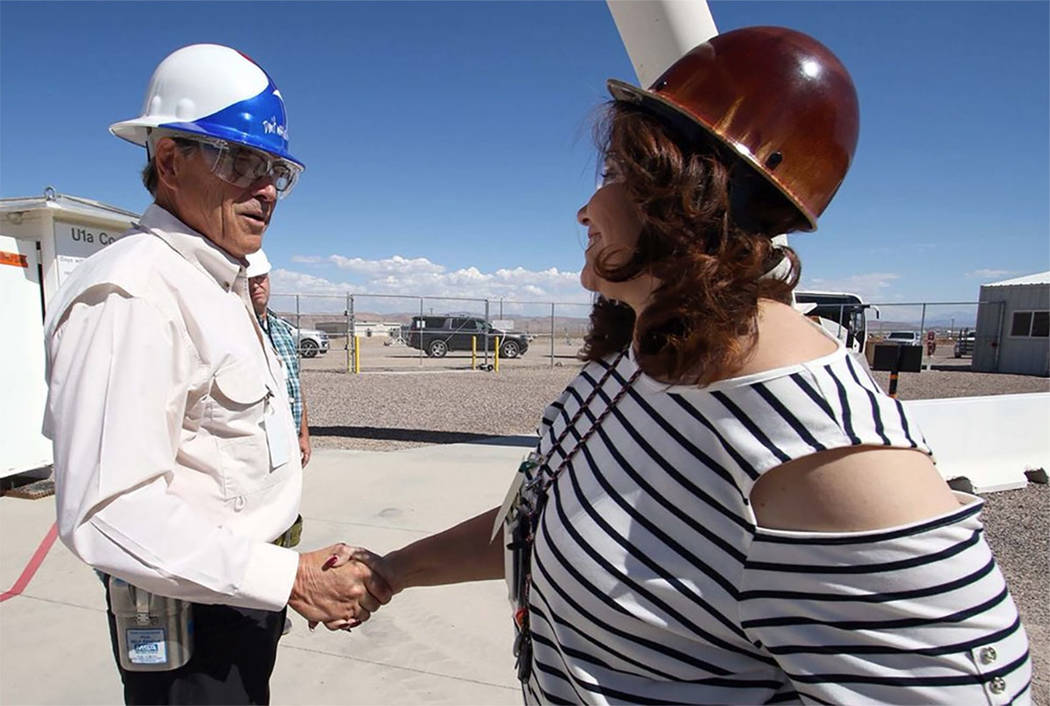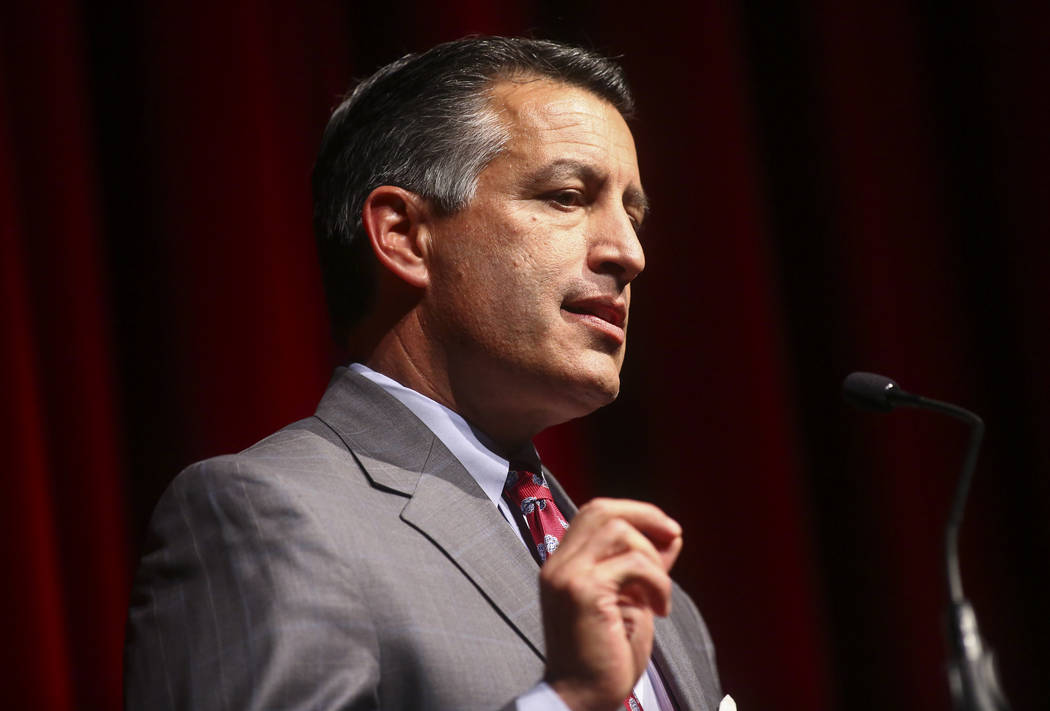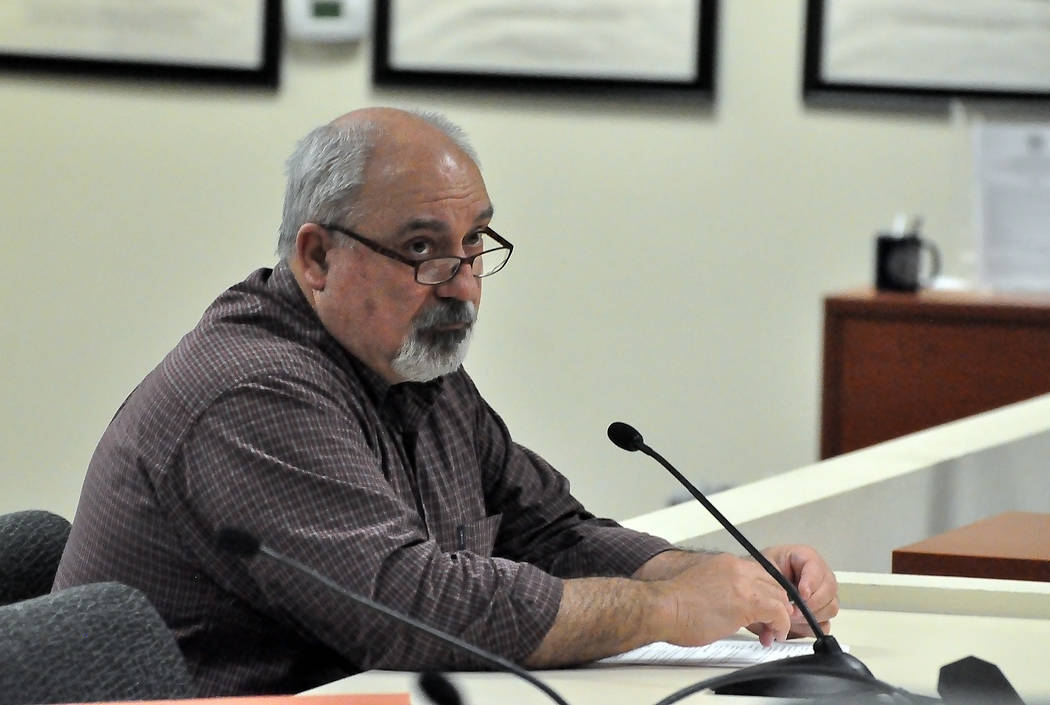Nevada sues to stop plutonium transfer to site near Las Vegas
WASHINGTON — Nevada has filed a federal lawsuit seeking a halt a court-ordered shipment of military-grade plutonium from South Carolina to a temporary storage facility in Nye County.
The state cited health, environmental and transportation in its filing with the federal district court in Nevada.
“I don’t want Interstate 11 to become the plutonium expressway,” Robert Halstead, executive director for the Nevada governor’s Agency for Nuclear Projects and Nuclear Waste Project Office, said Tuesday, referring to the planned north-south freeway that would bisect the state.
The state’s motion, filed Nov. 30, seeks to prevent the Trump administration from shipping a metric ton of weapons-grade plutonium from the Department of Energy’s Savannah River site in South Carolina to the Nevada National Security Site, about 100 miles northwest of Las Vegas., in Nye County.
The Energy Department is under federal court order in South Carolina to move the plutonium from the site to comply with environmental laws.
Nevada claims the Trump administration violated the National Environmental Policy Act of 1969 by failing to conduct an environmental impact study to determine risks for shipping the high-grade material in 35-gallon drums through states to Nevada.
In addition, the state claims that DOE failed to look at five alternative sites in New Mexico, Texas and Tennessee before selecting Nevada to store the material.
The Pahrump Valley Times contacted Nye County government for comment.
“We agree with the state that there is not a need to rush this without proper studies,” read a statement attributed to Darrell Lacy, Nye County Nuclear Waste Repository Project director.
“We would like to see more information on amounts, timing and locations, etc., also we think the NNSS EIS (Nevada National Security Site environmental impact statement) needs to be supplemented to address the issues from using this location for storage of large amounts of special nuclear materials…” the statement said.
Special Nuclear Materials are approved for use on the Nevada National Security Site but the current environmental impact statement analyses were focused on quantities consistent with nuclear testing and active stockpile maintenance and not long-term storage of large amounts” of Special Nuclear Materials, the statement added.
The lawsuit was filed by state Attorney General Adam Laxalt at the direction of Gov. Brian Sandoval, who is leaving office because of term limits.
The state argues that once the material is moved, “Nevada will forever lose the ability to formally comment upon safety and environmental concerns related to the shipments.”
The Nevada National Security Administration issued a statement saying that it has “conducted the required National Environmental Policy Act analysis for these shipments, and all movements of this material will be carried out in a manner that complies with strict safety, security and environmental requirements.”
It also said that the nuclear material would be temporarily stored at the DOE-operated security site until it can be moved to Los Alamos National Laboratory in New Mexico or another site.
Sandoval and members of the state’s congressional delegation announced their opposition to the transfer of the radioactive materials when a federal district court ordered the plutonium moved on May 25.
Nevada, in its lawsuit, said shipping the weapons-grade plutonium through Nevada poses a risk of exposure to its populations and environment, including water sources.
The nuclear security administration has shipped bomb-making materials between its sites before, safely, according to the agency.
The agency has not revealed the date it plans to ship the plutonium to Nevada.
The Pahrump Valley Times contributed to this story.
At a glance
Larger than the state of Rhode Island, the 1,360-square-mile Nevada National Security Site is located 65 miles northwest of Las Vegas.
The contractor-operated site is overseen by the Nevada National Security Site Nevada Field Office.
Satellite offices are maintained in Los Alamos and Albuquerque, New Mexico; Santa Barbara and Livermore, California; Long Island, New York; and Washington, D.C.
Source: Nevada National Security Site



















